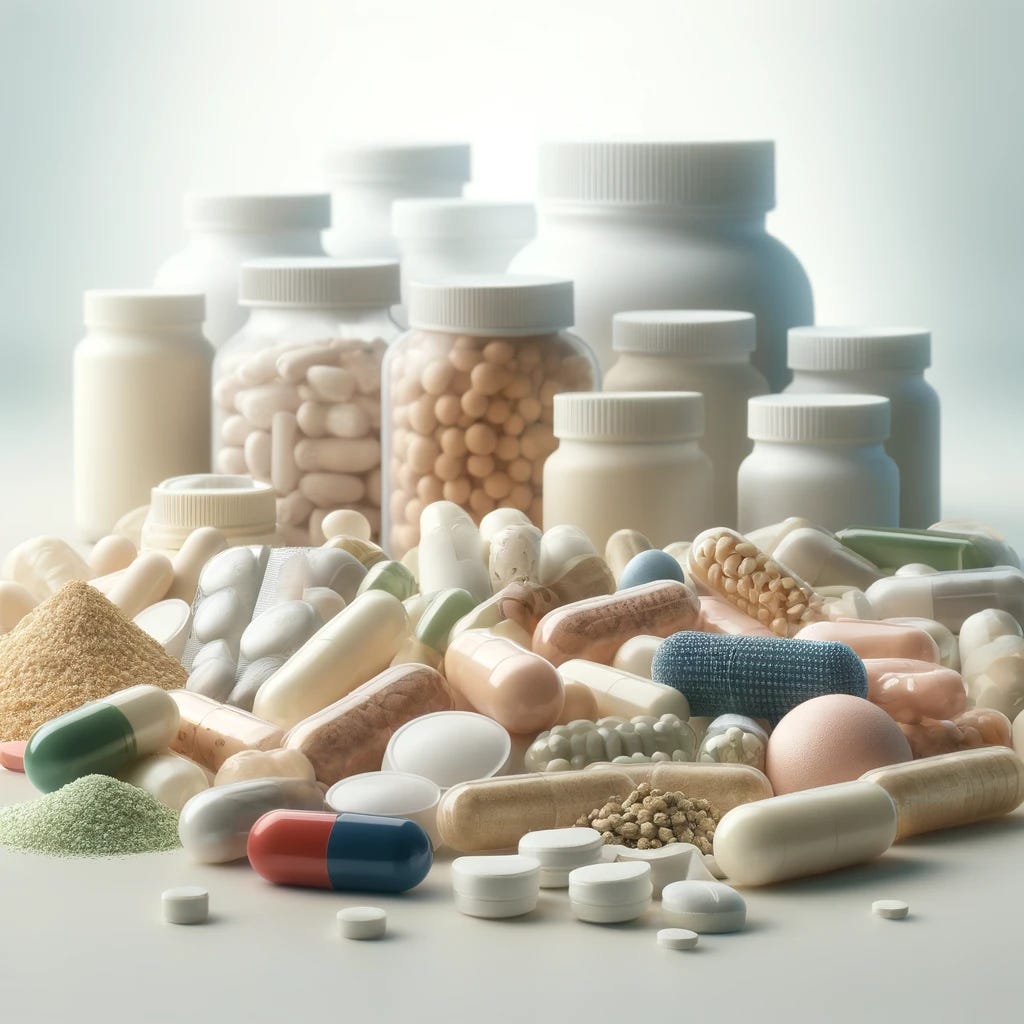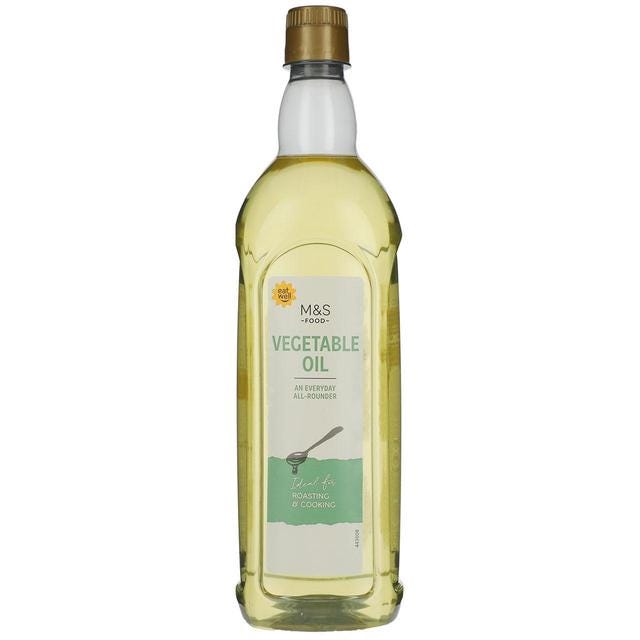The Gut-Brain Axis: How you can optimise it (Part 2)
What you can do to optimise this connection
At this point, you now know what the gut-brain connection is all about and what the mechanisms through which the gut influences the brain are, so we’re left with the elephant in the room… What can you do to optimise this connection, since it’s so important? What factors actually influence the health of your gut, and what are some efficient, practical tips that can be incorporated into your everyday lifestyle to favour a nourished gut?
Turns out that there are quite a few ways in which this can be done, but for the sake of brevity, there are a few main things to mention that directly impact our gut and mental health.
Just an anecdote to keep in mind before getting into the pointers: an imbalance in the gut microbiota is known as dysbiosis, where you have an abundance of pathogenic (aka harmful) bacteria and reduction in beneficial bacteria in the gut. This contributes to inflammation and stress, thus leading to poorer mental health. So you want to avoid dysbiosis as much as possible by avoiding things that contribute to it, and the following tips will help.
Tip 1: Consume probiotics
Maybe you eat a standard healthy diet of plenty of vegetables and unprocessed food. That’s great, but even in today’s fancy supermarkets, it’s hard to find the unmodified, un-GMOed stuff, and if you do, it’s either pretty expensive or you need to eat a lot of that kale just to reap the benefits. If you’re living in a city with pollution, or simply exposed to the stressors of modern life, your gut is almost more likely to suffer. Probiotics help eliminate this imbalance, by promoting a healthy gut microbiota balance. Notable studies have shown some astonishing significant effects that probiotics have on mental health. This study conducted a randomised clinical trial that looked at 40 patients with Major Depressive Disorder, with half given a probiotic, and half given a placebo (a dummy pill which doesn’t have any bacteria in it). They were followed up on after 8 weeks, and the probiotic group showed significant improvement in depressive symptoms. Impressive stuff.
This study did something similar but tested prebiotics too, which are foods that feed beneficial bacteria in the gut and therefore help them multiply. Both the prebiotic and probiotic groups showed significant improvements in mood scores and symptoms, compared to the placebo group. The cool thing is that, now we have what’s called synbiotics, which are a mixture of these prebiotics and probiotics.
These studies (of which there are many) all involved randomised clinical trials, which are the gold standard of scientific research because they have very strict inclusion and exclusion criteria, and minimise bias since the participants don’t know whether they are taking the probiotic or the placebo. There is clearly a very well established effect of probiotic consumption on eliminating dysbiosis, and promoting positive alterations in mood and emotional processing.
Tip 2: Reduce stress by managing your reaction to it
This is near the top for a reason. A little stress isn’t bad, and stress was needed in our evolution to keep us on our toes, so we could do things like run away from lions, or secure enough food in the wild. Now we don’t need to do things like run away from lions, but we’re bogged down by all sources of modern-day stressors daily, big or small.
Constant stress in our lives increases inflammation in our bodies and seriously wrecks our physical and emotional health; remember, inflammation is characteristic of most mood disorders. It’s important at this point to quickly go over the definition of inflammation and how inflammation in the gut from stress can affect mood, since we’re going to be using this word a lot…
Imagine you get a small cut on your thumb. The area around the cut might get red and a bit painful. This reaction is your body's superhero team (your immune system) springing into action. Inflammation is like the body's alarm system; it's a signal that your immune system is fighting off invaders like bacteria or viruses, or healing an injury.
But sometimes, the alarm system goes a bit haywire. Instead of just targeting the bad guys, inflammation starts happening everywhere without a real reason. This is like having your body's superhero team on high alert all the time, which can make you feel pretty lousy. When this unnecessary inflammation from too much stress happens in the gut, it can upset the balance of bacteria and other organisms living there. Since the gut is closely connected to the brain through nerve signals and chemical messengers, problems in the gut can send negative signals to parts of the brain that control emotional wellbeing, affecting how you feel. This can lead to feeling down or anxious, showing how closely our gut health and brain health are linked.
So, stress and inflammation is bad. To be honest, it’s hard to constantly eliminate stress, because that’s just life, and living it inevitably brings stressful events, like perhaps the death of a loved one, or your child not speaking to you. You cannot control what you cannot control, but you can control your reaction to these stressors.
How do you do this? I hear you ask. Well there are definitely a few things. One: take a deep breath, and take many of them. This almost immediately re-calibrates your nervous system by decreasing your heart rate and blood pressure, and gets fresh oxygen into your lungs which refreshes your cellular function to immediately boost energy while reducing tension and stress in the body. One type of breathing, known as cyclic sighing (where you inhale, followed by another sharp inhale, before exhaling), has been shown to be the most effective way to reduce stress. Two: sleep more. A big one. Sleep is crucial for reducing stress, and helps you better manage your reaction to stressful events, too. When you sleep, your brain regulates levels of stress hormones like cortisol and adrenaline, and when awake, a good night’s sleep helps you be more resilient to stress. Finally, move your body. Exercising reduces stress hormones and releases endorphins, which are your body’s natural painkillers and mood boosters. This links to the previous point on sleep, since exercise improves sleep quality, in a positive feedback loop. Maybe it’s finally time for you to try that running club.
Tip 3: Manage your diet
You may not feel in control of a stressful life event, or maybe you live in a particularly polluted city, of which toxins can inflame your gut, but if there’s one thing you are in total control of, it’s what you decide to put into your body. Alongside probiotics, a diet rich in fibre and fermented foods, like kimchi, yoghurt, and sauerkraut, supports the growth of beneficial bacteria. The fermentation process means that these foods already have the good bacteria in them, so it is like you are directly ingesting a probiotic. The annoying thing about probiotic foods is: the bacterial content is usually very variable, especially if you buy it off a supermarket shelf, since this is affected by the fermentation process, storage conditions, and type of vegetables and other ingredients used. Many kimchi labels have a lot of added sugar that almost counter the beneficial effects of bacteria, so be cautious and look at the ingredients of whatever you’re buying, or go ahead and make it yourself– it’s easy enough!
Then there are the prebiotic foods (not to be confused with prebiotic pills which conveniently transport the prebiotic fibres directly to your gut, as I reference in the first point). These foods are called prebiotics because they precede the growth of beneficial bacteria in your gut by acting as their food, due to the presence of certain fibres that our bodies cannot digest. Upon consumption, the bacteria ferment these fibres and produce SCFAs, which are those beneficial compounds discussed in the a previous blogpost. Garlic and onions are not only flavour-enhancing pantry necessities, but are also prebiotic superfoods, since they contain what’s known as fructooligosaccharides, or FOS, which are one example of these non-digestible fibres. Another prebiotic food is asparagus, which contains another type of these fibres called inulin. Kimchi may be considered a prebiotic food too, since the vegetables that make it (usually Napa or Chinese cabbage) have fibre that also promote the growth of good bacteria. Since they contain the good bacteria itself too, it’s almost like a 2-in-1, a prebiotic and probiotic food. Overall, all these foods contribute to the overall healthy maintenance of your gut and its lining, reducing inflammation and thus have the ability to drastically improve your physical and mental health. Tricky thing here is: if you’re not getting them in a handy little pill, you need to ensure you’re eating a lot of them, daily. Other examples of prebiotic foods include unripe or less-ripe bananas, apples, and artichokes.
On the flip side, a diet high in processed foods and sugars increases inflammation in the body and induces dysbiosis, thus negatively impacting mental health. A main ingredient in these processed foods is vegetable or seed oil, such as sunflower oil, canola oil and generic vegetable or palm oil. All these oils are extremely high in omega-6 fats, or fats which are pro-inflammatory, unlike omega-3 fats which are anti-inflammatory. This is because they serve as precursors to the synthesis of pro-inflammatory compounds in the body, which contribute to chronic inflammation in the body when in excess. Inflammation is further induced because these oils directly contribute to dysbiosis, too. No bueno.
To conclude…
Hippocrates was definitely on to something when he said, ‘all disease starts in the gut’ more than 2000 years ago. Now we have an explosion of scientific literature expounding the benefits of gut health on physical and mental health. Did you know that 20% of people who take antidepressants or anxiolytics show no improvement at all? Yeah. This means we simply cannot rely on these medications alone to resolve our health issues. By adopting a holistic approach that includes a balanced diet, regular sleep and exercise, probiotics, and stress management, we can positively influence the intricate connection between our gut and our mind. Embracing this knowledge empowers us to make informed lifestyle choices to be our 2.0 selves.





